Nerd Nite Kyushu’s first presentation event of the year is happening right on the heels of the Extra Lives concert! This time we’re talking all about linguistics and language. We all talk and communicate, but what do we know about the how language is formed? Or how linguistics shapes our mind? What actually is linguistics? Join us March 2 (Sun) at B.R.E.W. for another night of nerdy talks by nerdy people.
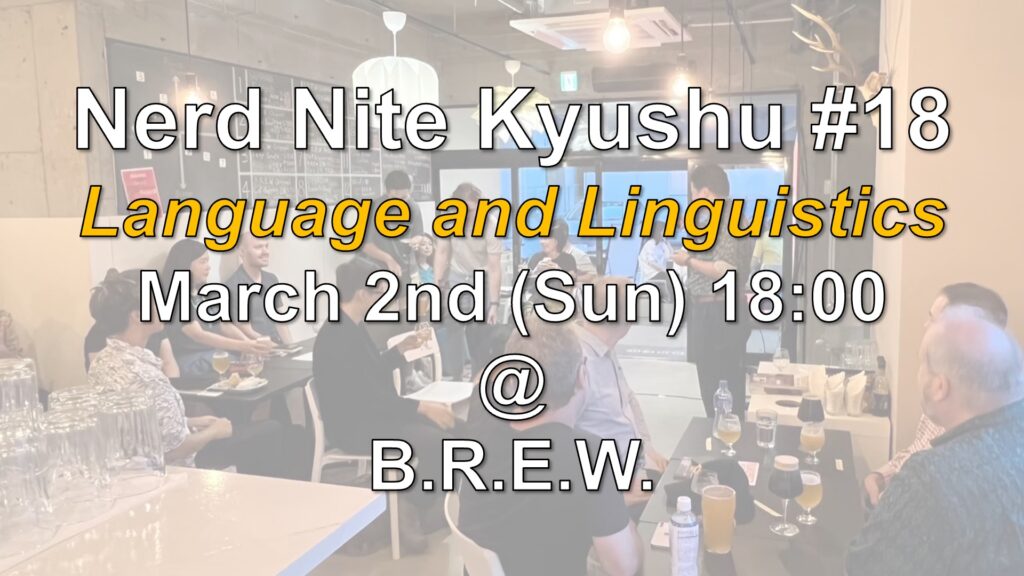
Where
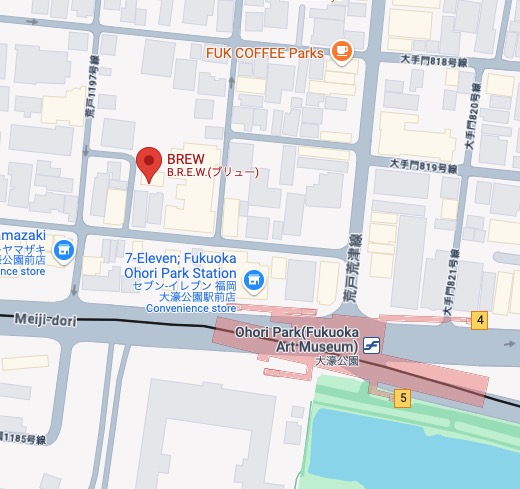
B.R.E.W. (Two minutes from Ohori Park station)
Entry fee: ¥1000 (comes with a drink ticket)
入場料: ¥1000 (ドリンクチケット付き)
Speakers
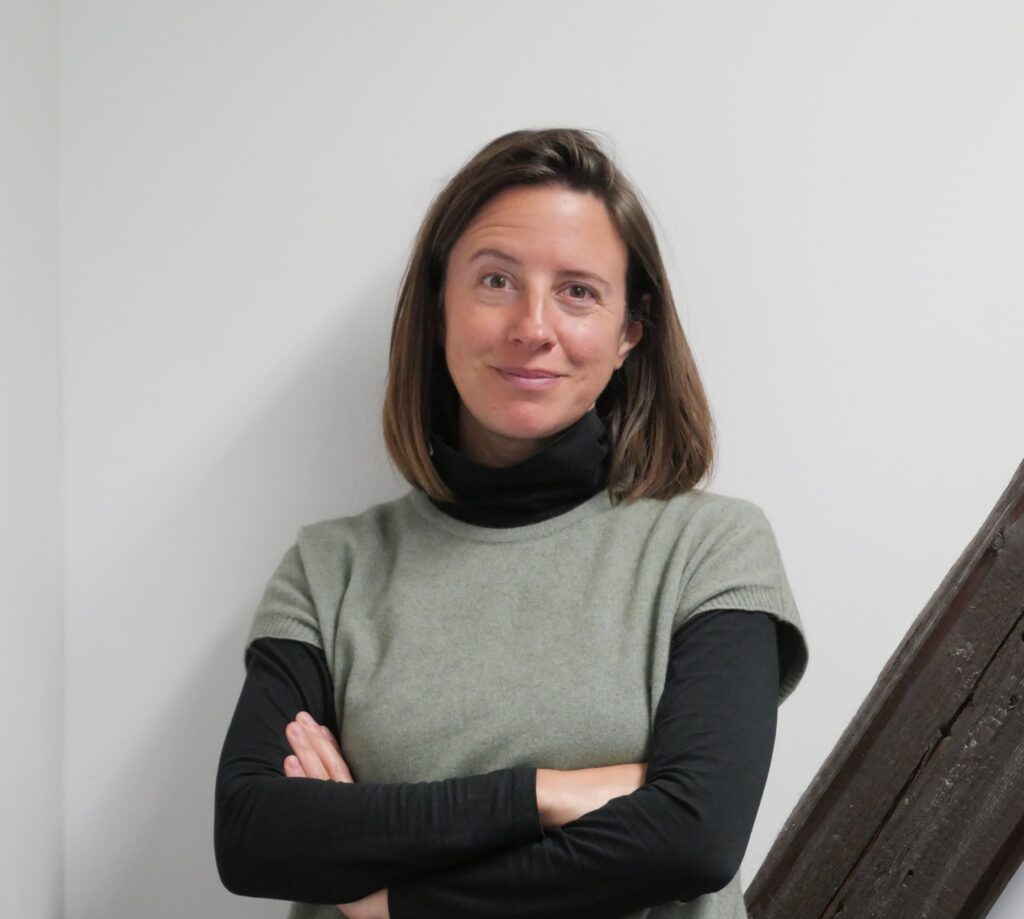
Myth Busting with Linguistics
By Carrie Ankerstein
Have you seen the psychopath test on YouTube – where some dude in a gaming chair asks you a bunch of questions and magically knows your final answer? Have you heard that “0NLY C3RT41N P30PL3 C4N R3AD TH15” and “it deosn’t mttaer in what oredrthe ltteers in a wrod are”? Lol, no. Gamer dude can’t read your mind; EV3RYON3 C4N R34D TH4T; and yes, lteetr oedrr deos mteatr. These are amusing little games, but there is real linguistic science behind them. Here we’ll explore the truth about the language in your mind.
Carrie Ankerstein is a visiting professor of linguistics in the Department of Language and Literature at Kyushu University, currently on leave from her position at Saarland University in Saarbrücken, Germany. Her background is in psycholinguistics and her research focuses on how we process our first and second languages. Born and raised in the US, she has spent years entertaining audiences all over Germany on the Science Slam circuit, humorously justifying her struggles with the awesome German language using science. In her Nerd Night debut, she’ll bust popular language myths, revealing the truth about how we really read and whether you might be a psychopath.
Language acquisition of younglings and the Yo-yo
By David Dunlop
“Feed them on your dreams” is a line from the song Teach your Children that provides the foundation of education: anything is possible if you give it a go. In this talk we will discuss how children learn a foreign language and explore different methods of facilitating this process. Looking through the lenses the four learning styles and the Yo-yo method. This is the way!
Having being born in Oxford and moving to Montreal for the start of elementary school I experienced linguistic and cultural diversity from the beginning. By high school I was able to gain employment in French and worked in this bilingual environment until returning to Oxford to acquire the CELTA Certificate. After a brief stint in Spain I found myself in Tokyo at the age of 30 with my greatest linguistic challenge ahead.
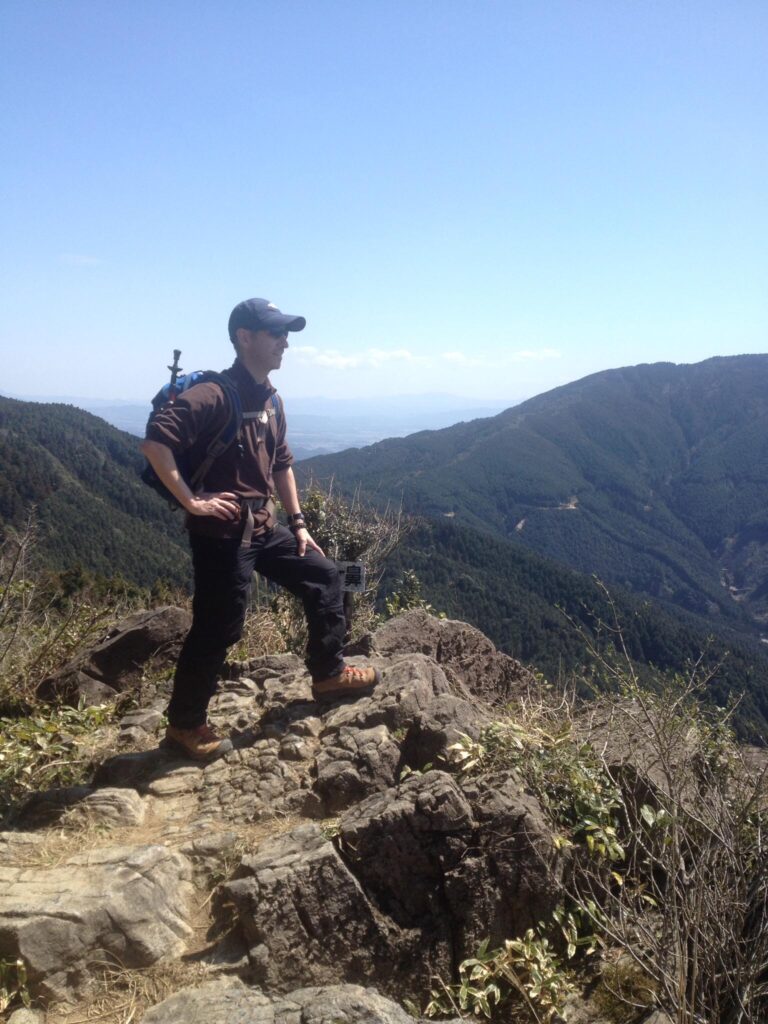
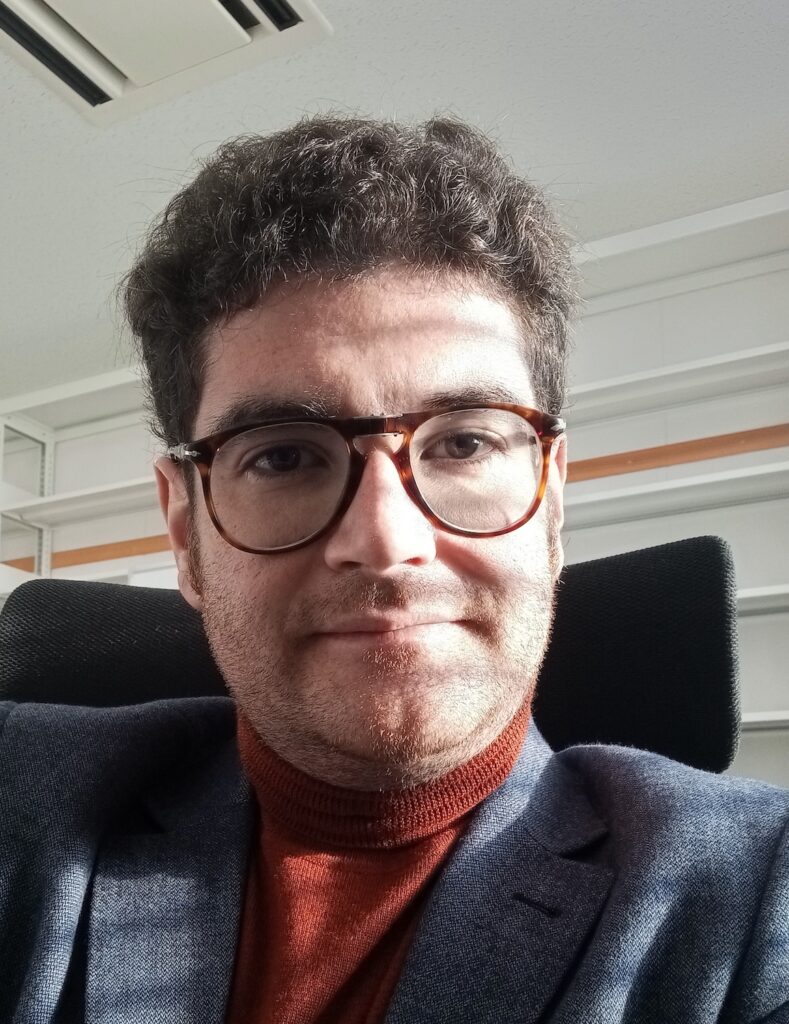
How do we think? Some words on abstract concepts and concrete actions
By Matteo Tarsi
In my talk, I will explore a few pathways of human cognition underlying the creation of verbs meaning ‘to teach’, ‘to learn’, ‘to know’, ‘to think’ etc. I will mostly focus on the Indo-European languages, which is the topic of my research period here at Kyudai, but will also show that these pathways are for example also found to some extent in Japanese. The field of studies in which this research is carried is called lexical typology and aims at finding common patterns in the World’s lexical inventories.
Matteo holds a PhD in Icelandic linguistics from the University of Iceland, Reykjavík. After having devoted much of his early career to loanwords and Scandinavian languages, he is now much interested in topics of general linguistic and typological interest. He likes to see how words are formed and how meanings come about. In Japan, he inquires into the making of abstract meanings from concrete ones in the history of the Indo-European languages.